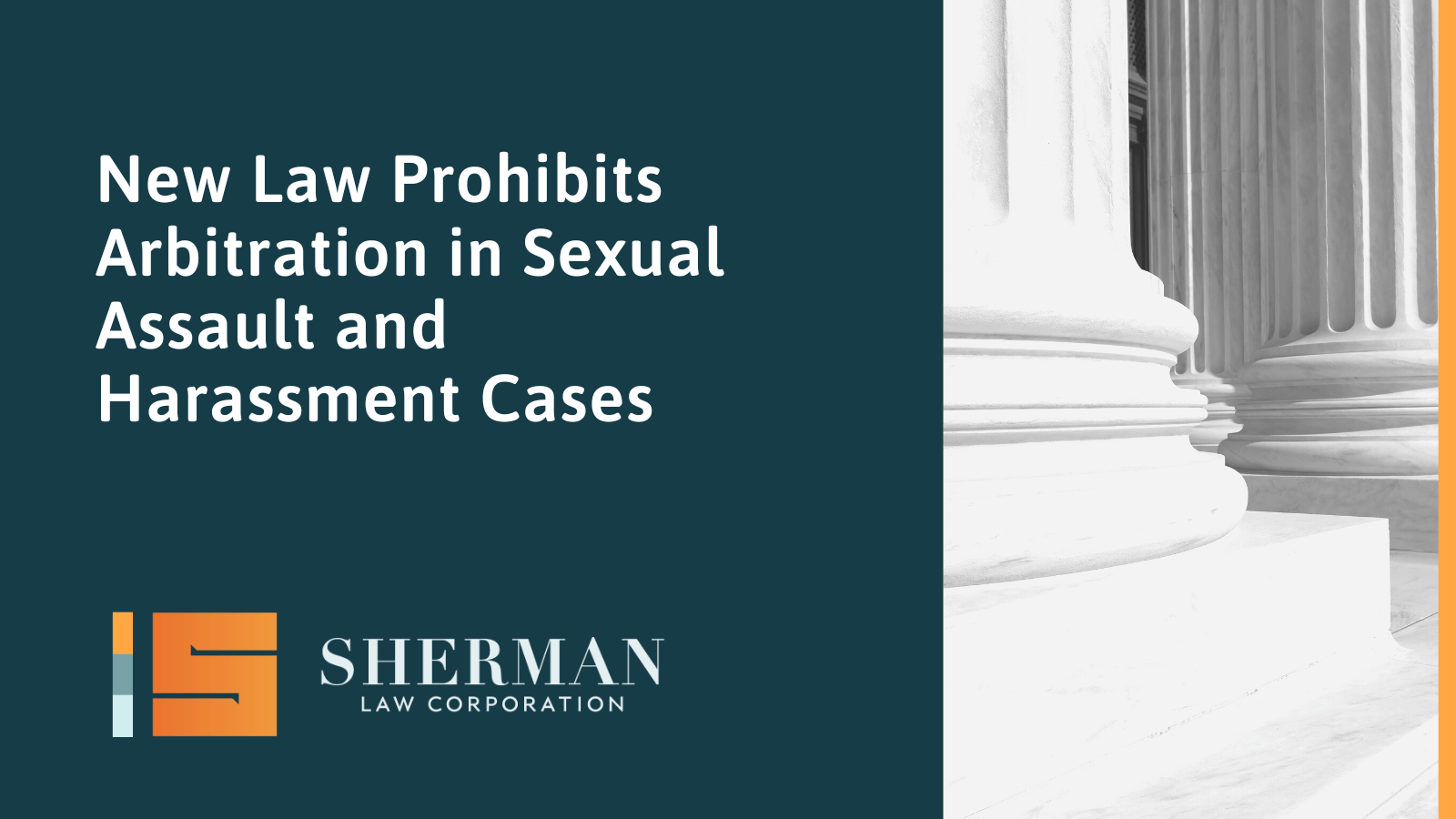
On March 3, 2022, President Joe Biden signed the Ending Forced Arbitration of Sexual Assault and Sexual Harassment Act of 2021 into law.
Effective immediately, the Act prohibits mandatory arbitration agreements with regards to sexual assault or sexual harassment disputes in the workplace. This new law amends the Federal Arbitration Act of 1925, which established private dispute resolution as an alternative to state or federal litigation.
What This Law Means for Your California Business
As the title indicates, the Act now grants sexual assault and sexual harassment victims the power to invalidate such mandatory arbitration agreements, but they may proceed through arbitration if they choose.
There are two key points that business owners should note:
- First, the Ending Forced Arbitration of Sexual Assault and Sexual Harassment Act only applies to mandatory arbitration agreements that are signed before a sexual assault or harassment dispute arises.
- Secondly, existing mandatory arbitration agreements are still binding as the Ending Forced Arbitration of Sexual Assault and Sexual Harassment Act applies only to claims that arose on or after March 3, 2022. Therefore, it is important that your employment attorney redraft your arbitration agreements if they contain mandatory arbitration clauses regarding sexual harassment or assault claims.
What Else Do California Business Owners Need to Know About This Law?
The Ending Forced Arbitration of Sexual Assault and Sexual Harassment Act is a significant advancement in the rights of workers, but it is not as broad in scope as more historic pieces of legislation.
It does curtail the ability of many companies to hide claims of sexual harassment and assault, but it only applies to those claims that are sexual in nature—or, at least, it appears to at the outset.
Some of the confusion surrounding the new law is a result of its imperfect wording.
The Act applies to a “case” rather than a “claim,” which may mean that it could have a broader scope than merely sexual harassment and sexual assault disputes. If the “case” also involves other actions like retaliation or unlawful termination related to a harassment or assault claim, then a mandatory arbitration may be voided by the courts.
The authors of the Ending Forced Arbitration of Sexual Assault and Sexual Harassment Act may have intended such a loose interpretation in advance of a legal trend to bar mandatory arbitration agreements of all kinds.
A key example of this is the 2019 California law that prohibits such agreements that relate to violations of the California Fair Employment and Housing Act, and which is being adjudicated in the courts.
Sherman Law Corporation Is Here For You
If you would like reliable guidance on the Ending Forced Arbitration of Sexual Assault and Sexual Harassment Act or any other workplace policy, Sherman Law Corporation is here to help. Contact us at Sherman Law Corporation today to discuss your unique situation with an experienced employment litigator.



